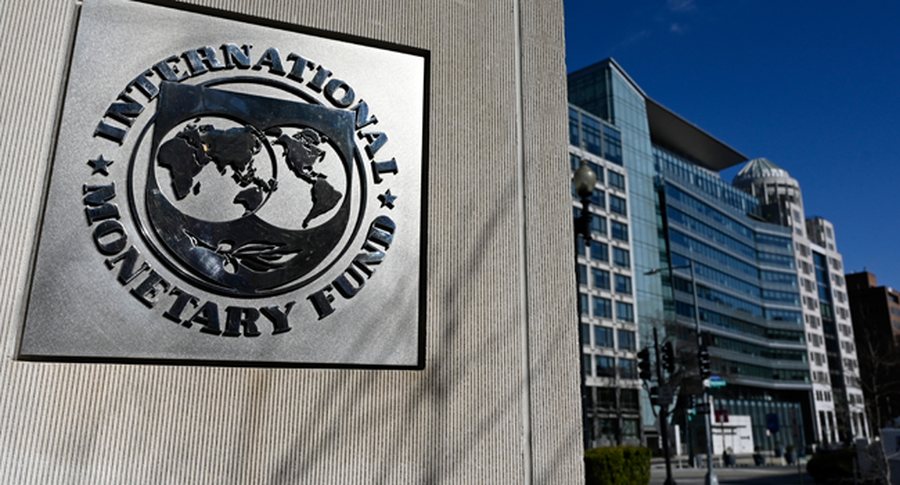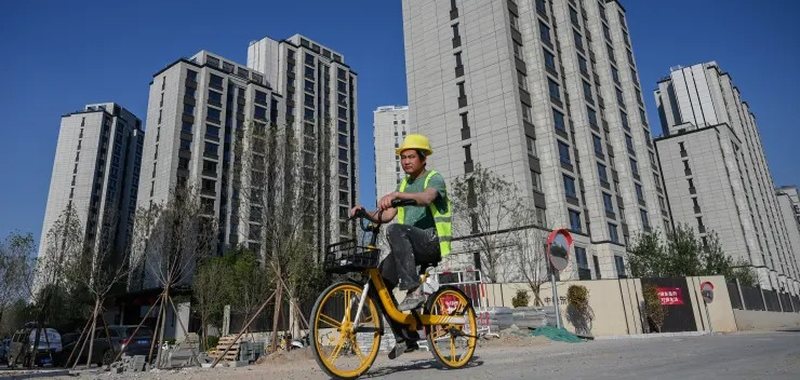“Albanian economy, too euroized” - IMF: Banking sector has been transformed. Risks remain from securities

Over the last decade, the Albanian banking sector has undergone a remarkable transformation. The International Monetary Fund estimates that from 25% of the level of non-performing loans in the banking sector in 2014, where we had a weak macroeconomic performance, large government arrears and others, bad loans accounted for less than 5% of total loans in the first quarter of 2024, thanks to financial reform and a strong macroeconomic environment.
In terms of bank ownership, the degree of foreign ownership has declined significantly, with the share of assets owned by foreign banks falling from 90% in 2013 to 65% in the first quarter of 2024, reducing the system's vulnerability to risks that may arise from external shocks. Banking supervision has also been continuously strengthened.
According to the International Monetary Fund, the sector has weathered a series of recent shocks well. Despite the banking system facing multiple internal and external shocks in recent years (such as the 2019 earthquake, the pandemic, the Russia-Ukraine war), it has remained resilient. Banking sector profitability has been stable with an average return on assets of around 1% between 2019 and 2022, which increased to an average of 1.7% in 2023 and 2024, as a result of higher interest income, which has come as a result of high lending rates.
However, the banking system remains vulnerable to several risks. Albania continues to rank among the top countries in Europe in terms of bank holdings of securities, presenting risks stemming from the financial relationship between the government and the country's domestic banking sector.
Local currency government bond markets and money markets remain illiquid, which could complicate banks' ability to generate liquidity during stress episodes. The economy remains highly euroized, and while unhedged foreign currency lending has declined as a share of total foreign currency loans, two-thirds of unhedged foreign exchange loans are concentrated in the real estate sector, which has seen rapid credit growth in 2024 and continued price increases.

China's economic growth exceeds expectations - But Trump's tariffs risk slowing recovery
China's economic growth in the first quarter exceeded expectations, supported by strong consumption and industrial production. However, analysts fear that......

Rama and Denaj, meeting with farmers of Cërrik - "Mountain Package, as a concept also in cultivated lands"
Prime Minister Edi Rama and Minister of Agriculture Anila Denaj held a meeting with farmers in the Cerrik area. According to Denaj, in this area the support......

Trump launches investigation into critical minerals - Decision could lead to additional tariffs on imports
US President Donald Trump has signed an executive order to launch an investigation into critical minerals, potentially leading to additional tariffs on......

Elbasan-Lekaj highway, first 20 km almost completed after 1 year - Rama: Infrastructure program, also within the framework of the Western Balkans Investment Fund
Prime Minister Edi Rama and the Minister of Infrastructure and Energy, Belinda Balluku, have inspected the construction works for the Elbasan - Lekaj......

Parties "face" economic programs - DP: Fiscal sustainability. "Opportunity": Spending cuts
The Chamber of Commerce and Industry, in cooperation with Monitor magazine, organized a conference to discuss the economic programs of the political forces......

"The increase in energy prices harms citizens" - Gërxhaliu: Businesses will pass on costs to products and services
The decision of the Energy Regulatory Office of Kosovo to increase the price of electricity by 16.1% for all categories, starting from May 1, will also......

The most expensive cities in the world - Monaco tops the list of the 10 most luxurious countries
Every year, Henley & Partners, also known as the definitive authority on luxury real estate, releases its golden list of the most expensive cities on the......

"We will formalize the tourism industry" - Berisha: The state will take over part of the salaries of employees outside the seasons
During a conversation with tourism associations, the leader of the Democratic Party, Sali Berisha, said that this sector has a very major problem, which is......


















